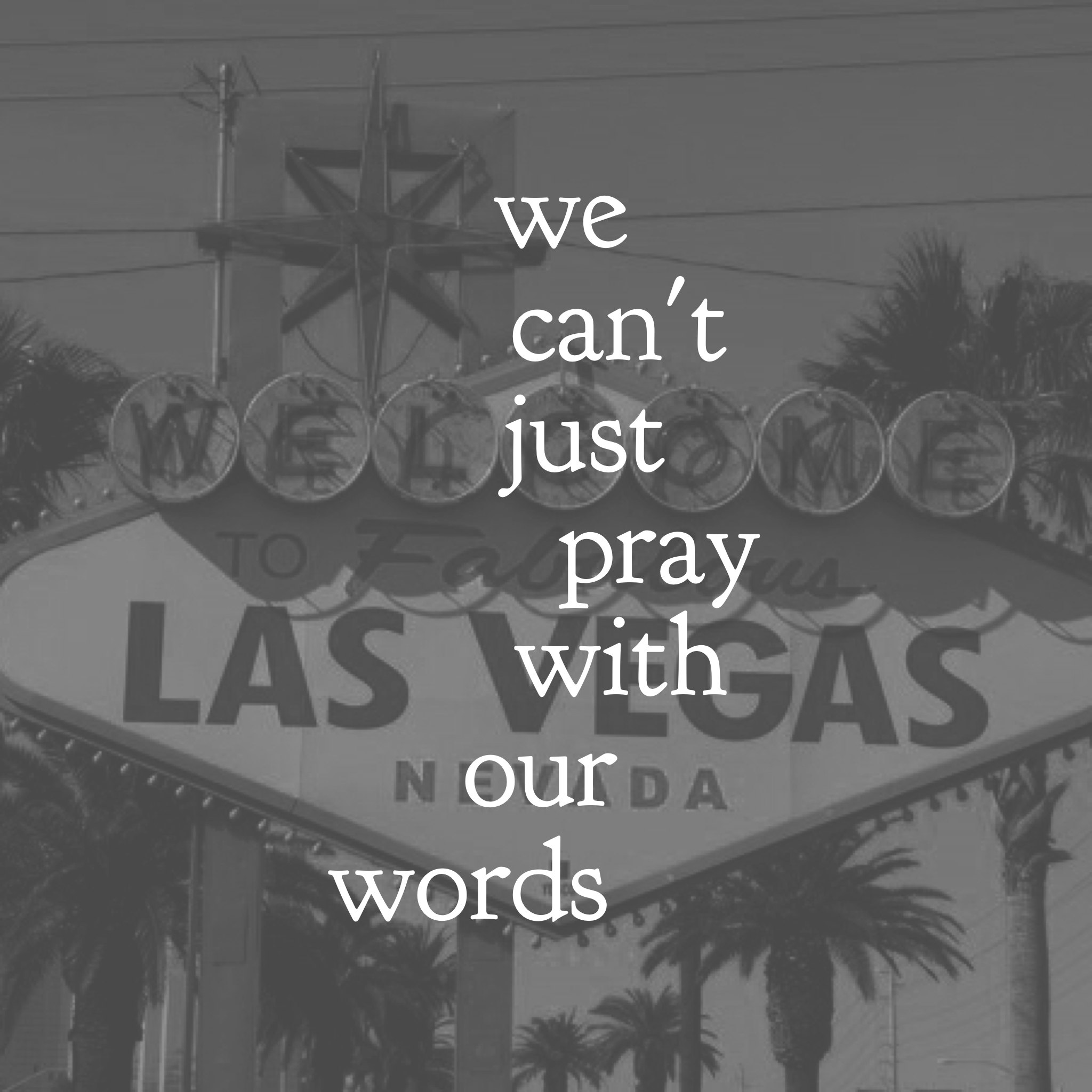Chasing the Questions (Proverbs 2:1-5)
The following is the sermon manuscript I used to preach The Bridge worship service at Woodmont Christian Church on October 15. This isn't exactly what I said, but this is what was on the paper in front of me. The sermon actually began with everyone getting into small groups and talking about what question they would ask God if they had the chance.
I grew up in a faith tradition that prized answers. Knowledge was king. It mattered what you knew. I think I’ve said this before but my childhood pastor was fond of saying, “Do you know that you know that you know that you know where you will spend eternity?” And I don’t think that was done for nefarious reasons. I don’t think it was any sort of 1984-esque thought police trying to crack down on us. But when you are in that sort of environment, you become a lot more concerned with finding the right answers rather than learning how to ask good questions. As I got into high school, we talked a good deal about apologetics and in that context, questions were the domain of people who didn’t have the answers.
There are some of us who have grown up in contexts where questions pertaining to faith are not technically considered bad, but they are on that proverbial slippery slope. Sure you can ask why God allows evil to exist in the world, but you better find that answer quickly lest you start asking more questions and more questions and then the next thing you know you’re skipping church so that you can go to brunch before you and your friends sacrifice a live goat to the Flying Spaghetti Monster.
That’s obviously a wild exaggeration, but I think there is still this unnerving nature to questions. If we are asked to trust in God, aren’t these probing questions some kind of sign that our trust is tenuous? The trouble is when we view questions warily within the church, it can create this fight or flight response when we encounter a particularly vexing question. I remember my Introduction to Biblical Literature class where we faced all sorts of questions about the Bible because our professor did not teach it the exact same way as many of our Sunday school teachers taught it.
And some students fought the professor tooth and nail because they were worried that if one of his questions about biblical authorship or history was valid then it could bring the whole thing down. And then some students took the flight route: they either tuned everything out or they completely fled from their faith because it didn’t line up with these new questions. There wasn’t an attempt to wrestle with the mystery.
Questions are difficult because they poke and prod at what we believe and what we believe is something incredibly precious to us. And because it is precious to us, it is often something that we think is rock solid. We like our beliefs to be firm and secure and feel like they have been there since the dawn of time. So we don’t like to be challenged in that. Yet it’s those very times of tension that really help us discover what we believe.
I was listening to a podcast earlier this week and theologian and philosopher from Northern Ireland named Peter Rollins was speaking about belief. I would play the clip for you, but you would hear his brogue and then everything I would say in my Southern-ish accent would sound 25% dumber after you heard this Northern Irish philosopher. But I digress. Rollins said:
“As if we know what we believe….None of you believe that a duvet cover will protect you from a knife attack. Unless it’s late at night and you hear something downstairs. And then you get all Harry Potter and suddenly it’s an invisible cloak that you put over your head. You believe it. You just don’t know you believe it. In fact, that’s why you do things like psychoanalysis is because you realize that coming to know what you believe is a profoundly difficult thing.” (from The Liturgists Podcast episode "Enemies")
Coming to know what we believe is a profoundly difficult thing. Questions force us to face that profound difficulty. As a youth minister, one of my goals that I’m still working on is giving our students the building blocks for their faith. I believe in giving good answers, but I also believe in giving them the tools to ask good questions because I know that figuring out what they believe is going to be a lifelong process. I want them to see that it is okay to follow Jesus but still ask questions. I think that example can go a long way in having a faith that grows and matures with us into adulthood. I was fortunate that I had that example growing up.
I was always a bit of a question asker as a child and I was fortunate that my parents fed that curiosity. One of the first books that I remember reading as a children was a series about a mouse named Christopher. All the books were about different science questions and had titles like “Why Does it Snow?” or “What is a Volcano?” or, my personal favorite, “What is a Space Shuttle?” I wanted to be an astronaut when I grew up. It didn’t take.
I don’t know if my parents were trying to appeal to my childhood ego by buying me a whole bunch of educational books where the main character shared my name, but it worked. Those books taught me that questions were a starting point in discovering all sorts of fascinating things about the world. They taught me early on that it was good to ask questions.
And even when my church context cast a wary eye towards asking questions about God, faith, and the Bible, I was fortunate enough that my folks let enough oxygen into the world of faith that it could breathe. I remember one conversation in particular that I had with my dad. I don’t remember exactly how old I was. I know I was either 17 or 18 years old. I know I was on I-20 between Columbia and Florence, SC with my dad. We were either coming or going from the summer church camp that we did. I-20 between Columbia to Florence is one of the most boring stretches of road in the country. At least that is what I thought until I drove I-40 west to Memphis a few weeks ago. But I-20 is flat and boring. There are gaps in the interstate concrete to allow for the road to expand in the ungodly South Carolina heat. So you hear this constant mind-numbing th-gunk….th-gunk…th-gunk as you drive down the road.
I don’t know how we got started, but my dad was talking about how there were some people who thought that God dictated everything that was written in scripture. Every word, every event that was put to stone, papyrus, and paper was exactly what God said to these human secretaries. I was familiar with the idea. The answer “The Bible says it, that settles it” was a popular answer to those slippery questions. I asked him, “Is that what you think?”
Dad shook his head and talked about how there are passages in which Paul talks about some instructions come from him while others come from God so if Paul was inserting things that admittedly weren’t heard directly from the mouth of God then that raised more questions. Then he said that he was uneasy with the idea that God would command the people of Israel to commit genocide and to slaughter women and children. He didn’t have an answer for why that was in the Bible. He was still wrestling with it.
Honestly, I think that conversation on I-20 is a big reason why I’m here today. Seeing that somebody could be a follower of Jesus and yet still ask questions saved me from that fight or flight mentality in college and beyond. And I should not have been surprised that was the case.
If you look at scripture, it is littered with question askers. Abraham and Moses constantly wrestled with God. The Psalms are filled to the brim with questions like “Where are you God?” and “Why are you letting the evil people prosper?” The Book of Job, which Clay alluded to last week, is nothing but questions. After Job’s world comes crashing down, the rest of the book is basically Job saying, “What the heck, God?” Then Job’s friends saying, “What the heck, Job?” Then Job saying, “What the heck, guys?” And then God ultimately saying “What of it, mortals?” I go back and forth between thinking The Book of Job is brilliant and deeply frustrating.
Jesus’ disciples asked questions all the time. They asked about what parables meant, they asked how things Jesus did were even possible, they asked if Jesus could teach them to pray, they asked if they were the ones who would abandon him. Even Jesus asked God why he had been forsaken when he was on the cross. Sometimes those questions were answered, sometimes they weren’t. But those questions were all asked by people who followed God closely. Questions are not an obstacle to faith. Questions are paved into the road of faith.
There is a genre within the Bible called Wisdom Literature that includes Job, Proverbs, Ecclesiastes, and other books that seems to particularly prone to these questions. Earlier we read our text for today—Proverbs 2:1-5—and I’m going to read it again from The Message translation:
Good friend, take to heart what I’m telling you;
collect my counsels and guard them with your life.
Tune your ears to the world of Wisdom;
set your heart on a life of Understanding.
That’s right—if you make Insight your priority,
and won’t take no for an answer,
Searching for it like a prospector panning for gold,
like an adventurer on a treasure hunt,
Believe me, before you know it Fear-of-God will be yours;
you’ll have come upon the Knowledge of God.
Search for wisdom, for understanding, for God like an adventurer on a treasure hunt. What if we didn’t think of questions and these times we struggle with our faith as these laborious slogs? What if we thought of them as part of this quest? Like it was something out of Indiana Jones?
I mean if you think about it, following God fits with the things that Dr. Henry Jones Jr. faces. There are the pedestrian, ordinary parts. For Indy, that was teaching archaeology. Then there are the fun parts like globetrotting and punching Nazis. And then there are the terrifying things like snakes and guys with their faces melting off. Some of our wrestling with God is going to be kind of plain, some of it is going to be exciting, and some of it is going to really frighten us. But it is all part of this grand adventure.
And I know that going through periods where you are questioning God or sifting through your faith can be profoundly difficult. In other seasons of my life, this sermon would have sounded profoundly different. I may have compared it to Paul’s thorn in his side that he could never get rid of. There have been long seasons where my questions have felt like a burden. Those seasons may very well happen again. And there are probably seasons when it is good to just rest in what you know about God. Yet I have also experienced times when chasing after these questions has felt like a treasure hunt and I want to share a few reasons why:
- Questions help us make our faith our own - When we ask the questions that are on our heart, then we are engaging in that profoundly difficult but rewarding process of making our faith our own. We are asking what matters to us at the time and place that it matters to us.
- Questions help us to openly and honestly tackle life’s difficulties - When we stop fearing the questions then we allow ourselves to be raw and honest when times get tough. Again you can look back to the Book of Job. He does not pretend that everything is fine. He does not hold back and I think that is healthy.
- Chasing questions makes us more grateful for the answers we get - I hope you don’t think that I am saying that answers are a bad thing. I think they are incredibly valuable. Last week when Clay reflected on the question of why bad things happen, I personally appreciated the conclusion that he came to concerning God giving us the freedom to love, but that freedom also includes the capacity for people to choose evil. Answers are important. Yet when we realize that we can’t have all the answers then the ones we find become all the more valuable.
- Questions help us live with an open hand rather than a closed fist - When we realize that there is so much out there that we don’t know, it grants us humility. We are more ready to accept new ideas, people, and challenges as they come are way because they do not threaten our ironclad world of answers.
- Questions help us come to a better understanding of God - God is not something we can totally fathom. We can learn a lot about God from scripture, our experiences. I believe that we can learn the most about God when we look at Jesus. Yet if there is not room in our faith for questions then we are basically admitting that we think we know everything about God or we don’t want to know anything else. If we have all the answers then God is too small to be God. If we don’t want to know anything else, well, then what on earth are we doing?
I was back home in South Carolina this week. One night my parents put the boys to bed so I could go out to work on this sermon. I went to a tavern that is a stone’s throw away from my childhood church where that same pastor asks if people know that they know that they know that they know what will happen to them in eternity. I ran into a couple who go to the church that we went to before I moved here. A friend of that couple came over to talk to them and then she, finding out that I was a minister, hung around and talked to me. Mainly she wanted to share her story. She had grown up in the heart of the Bible Belt attending Baptist and Methodist churches, but she always sensed these questions inside her. She was restless. As she grew up, she read and researched.
She visited church after church, denomination after denomination. Until she found herself converting to Catholicism. She said, “Chris, I love Jesus so much and that’s where my head and my heart found him.” She was happy, so happy that she was willing to tell this story to a complete stranger. I could tell that she was hunting down the questions in her world like treasure and that, even though she was happy, she was not finished. She actually admitted it herself. As a woman, that church did not provide her many avenues for leadership or to pursue a calling if she felt a desire to go to seminary. She was happy that she had chased those questions thus far, but she knew that her journey, her quest was not yet over. She left saying she would pray for me about this sermon, as long as I didn’t mind a Catholic praying for me. I told her I’d be grateful since I need all the prayer I could get.
So let me encourage you to live a life of curiosity. I don’t want you to hunt for questions just for the sake of chasing questions, but listen inside you, study scripture, and talk with your community to find those questions that you need to chase. Don’t stop learning. Don’t stop pursuing after God. Seek God, seek wisdom, seek this way as if it were treasure. There are times it will be normal everyday stuff. There are times it will be painful. But there will be times when it will be awesome. Never stop learning. Never stop pursuing God. Do not let your quest come to an end. Amen.






